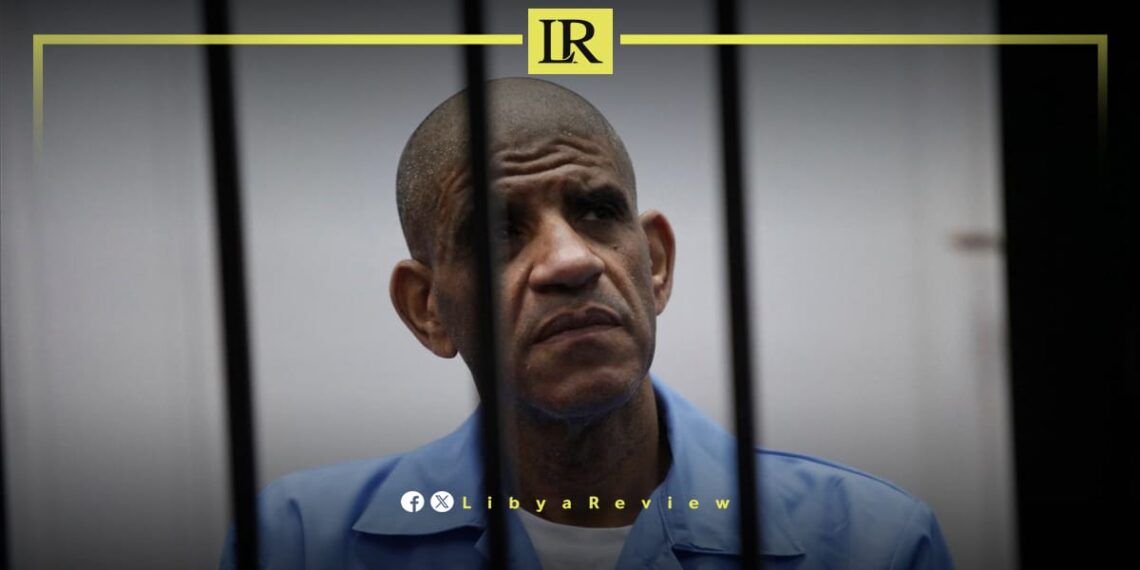The Tripoli Appeals Court has postponed the trial of Abdullah Al-Senussi, the intelligence chief during Muammar Gaddafi’s regime to 9 February 2024. The decision was made during a session held on Sunday.
The court ruled to keep the accused in custody and issued warrants for the arrest of other suspects connected to the case. The hearing was marked by the absence of two key defendants: Abdullah Al-Senussi, the former intelligence chief during Muammar Gaddafi’s regime, and Mansour Daou. Other detainees involved in the case, however, were present, as were defence lawyers.
The Abu Salim prison massacre, which occurred in 1996, is considered one of Libya’s most infamous human rights violations. It is estimated that over 1,200 prisoners were executed in a single day. Families of the victims have long sought justice, and the trial represents a crucial step toward accountability for crimes committed during Gaddafi’s rule.
Despite delays and legal challenges, the trial has drawn significant attention both locally and internationally. Human rights organisations have urged Libyan authorities to ensure transparency and fairness in the proceedings.
The absence of Al-Senussi and Daou, two high-profile figures allegedly involved in the massacre, raises questions about their availability to face justice. Al-Senussi, who is also wanted by the International Criminal Court for crimes against humanity, remains a central figure in Libya’s turbulent legal landscape.
The postponement is seen as an opportunity to strengthen the case by pursuing the arrest of the remaining suspects and preparing for a thorough examination of the evidence in February.
The Abu Salim prison massacre, which took place in June 1996, remains a painful and highly significant chapter in Libya’s recent history. The massacre occurred after inmates, many of whom were political prisoners or opposition figures, protested the harsh conditions within the facility.
Al-Senussi, a powerful figure and Gaddafi’s close confidant, allegedly ordered security forces to suppress the uprising, resulting in the mass killing of detainees. The families of the victims and human rights organizations have long sought justice, accusing the Gaddafi regime and Al-Senussi himself of orchestrating the attack.
Following the 2011 Libyan uprising that brought down the Gaddafi government, Al-Senussi was captured in Mauritania and later extradited to Libya. He now faces numerous charges related to alleged war crimes, human rights abuses, and the events of the Abu Salim massacre. For many Libyans, his trial is seen as a test of Libya’s commitment to addressing the dark legacy of the Gaddafi regime.


